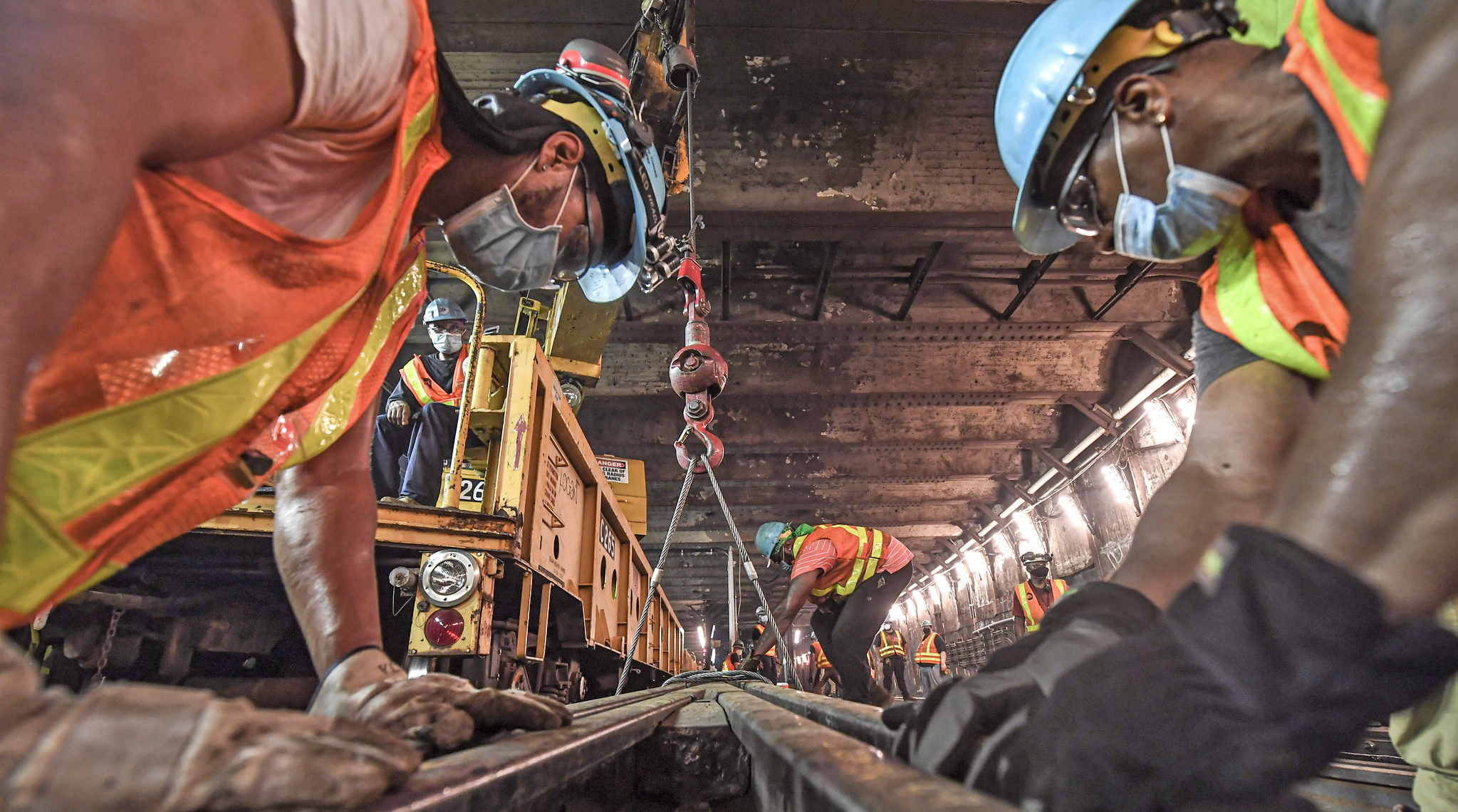MTA officials had a simple message for anyone who's asked how much money it would take to bring the transit system up to state of good repair: Stop asking us that.
"A major construction project is not something you go down to Walgreens to find the price of," MTA Chairman and CEO Janno Lieber said more than once on Wednesday.
Lieber bristled at the notion that the agency could be expected to lay out the costs of repairs because there are too many moving parts.
"You need to figure out this specific situation we're going to do this structural work in tandem with that signalling project in tandem with that ADA station project. A lot of it has to do with how many outages you're gonna have to have, how long that the the crews are going to have to be on the job. How do you mobilize the sequence of work? All of those things are what impacts on price, it's not just a generic throwing a number at it," Lieber said.
The comments came as the MTA has been both praised and critiqued by good government groups and budget analysts for it's most-recent edition 20-Year Needs Assessment, a document that is supposed to gauge the state of good repair of MTA assets, the cost to keep the system in a good condition and help inform spending and maintenance decisions in the agency's five year capital plans.
Observers said that the agency included more detailed information about the condition of the millions of individual components that make up the city's transit system, but those same observers were baffled as to why the MTA didn't include the price of bringing the system up to a state of good repair.
"As it stands, the public does not have a clue how much it would cost over the next five years to begin bringing the system to adequate condition," Citizens Budget Commission President Andrew Rein said in testimony to the MTA Board on Wednesday. "Would that take $40 billion, $80 billion, or more? And how much of a dent would that put in the percent of the system that is now in poor or marginal condition?"
Rein said that while the CBC is aware the MTA has been relying on new ways to bundle its projects, the agency also has enough experience doing that to extrapolate future costs.
"What we're saying is while there are specific details of what goes into projects, they should be able to make a reasonable estimate based on the work they're doing across the system," said Rein.
This year's needs assessment included a large appendix detailing things like how many subway cars the MTA will need to replace over the next 20 years and what percentage of various pieces of the system like subway platform edges and bus depot roofs were in poor or marginal condition. Rein and others praised that aspect of the document for laying out just how much work is needed to simply keep the current transit system standing.
But when pressed on Wednesday as to why the agency couldn't include how much those continuing needs would cost, agency leadership said the time for putting a price tag on any work is when the next capital plan comes out.
"We're going to come up with a plan that puts us on the path to getting and maintaining a state of good repair. The first step will be the five-year [capital] plan," said Lieber. "The public and and folks who look closely at us can monitor whether what we're proposing will credibly take us on that path to what needs to be accomplished to have a state of good repair."
Lieber also said earlier this week that since the full value of the MTA assets are about $1.5 trillion, "basic business school principles say we ought to be investing a heck of a lot more to keep it in condition" as compared to previous capital plans. So while this most recent assessment drives home that point, watchdogs said it will be difficult to determine the impact that $40 billion or $60 billion could have on bringing the system up to snuff, or if the MTA is taking care of the most pressing capital issues when the next capital plan lands in 2024
"They've put into the conversation that state of good repair has to come first, but how much of it?" said Reinvent Albany Senior Research Analyst Rachael Fauss. "You can't do it all because the need is so massive, so you have to do the most important things first. But if you don't know how much everything costs, you can't be sure you're spending all your money in the right places."






